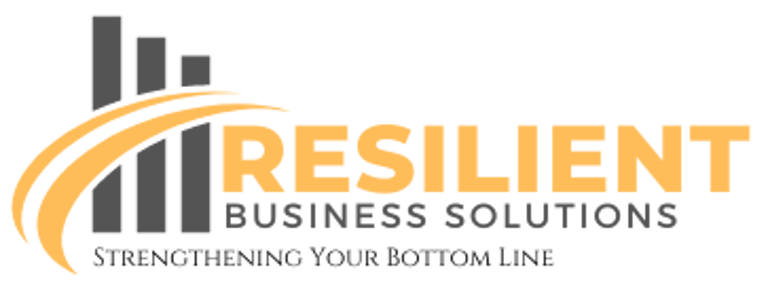The Impact of Late Payments on Your Business Cash Flow and How to Prevent Them
Discover why cash flow is crucial for business stability and growth. This post covers the impact of cash inflows and outflows, the need for positive cash flow, and strategies for effective cash management to support long-term success.
5 min read


Understanding the Importance of Cash Flow
Cash flow is the movement of money into and out of a business, playing a crucial role in its financial health. It consists primarily of cash inflows, which include revenue generated from sales, and cash outflows, which encompass all expenses such as payroll, rent, and utilities. A business's ability to manage its cash flow dictates its capacity to sustain daily operations, settle financial obligations, and pursue growth opportunities.
When cash flow is positive, a business has enough liquidity to cover its costs and invest in future initiatives. Conversely, negative cash flow arises when a company's outflows exceed its inflows, leading to potential financial distress. This condition can have serious implications, including difficulty in honoring commitments to suppliers, employees, and creditors. Moreover, it can harm a company’s reputation, impair its ability to secure financing, and hinder growth prospects, ultimately risking long-term viability.
Maintaining healthy cash flow serves as the backbone of operational stability and success for any business. Efficient cash flow management ensures that funds are available to meet immediate obligations and fulfill investment needs, thereby supporting ongoing operations. It is essential for businesses to monitor cash flow closely to preemptively identify any potential issues before they escalate into crises. By understanding and implementing effective cash flow strategies, enterprises can improve their financial resilience, adapt to changing market conditions, and capitalize on opportunities for expansion.
The interplay between cash inflows and outflows underscores the necessity for comprehensive financial planning. Regular forecasting and real-time cash flow tracking allow businesses to make informed decisions regarding spending and investment. In essence, a keen focus on managing cash flow is integral to sustaining a healthy business that can thrive in a competitive environment.
How Late Payments Affect Cash Flow
Late payments are a pervasive challenge that significantly impacts business cash flow, often resulting in dire financial consequences. When clients fail to settle their invoices promptly, businesses may experience cash shortfalls, disrupting daily operations and hampering their ability to meet financial obligations. Delayed receivables create a ripple effect; employers may struggle to pay suppliers on time, jeopardizing relationships and potentially leading to further delays in the supply chain.
The reliance on credit increases when cash flow is compromised due to late payments. Businesses often resort to borrowing to cover immediate expenses or operational costs. This reliance can lead to higher interest costs and increased financial strain, with small businesses particularly vulnerable. According to recent studies, approximately 75% of small businesses report that late payments negatively impact their ability to operate effectively, and nearly 60% have had to use credit sources due to delayed payments from clients.
Moreover, persistent late payments can lead to operational disruptions. For instance, if a business lacks the necessary cash flow to pay employees, it may face difficulties in maintaining staff morale and productivity. Employees might become concerned about their job security, resulting in decreased efficiency and increased turnover rates. A survey indicated that 40% of businesses faced employee-related issues due to late payments, emphasizing that the repercussions extend beyond mere financial metrics.
Real-world examples illustrate the severity of these effects. One notable case involved a mid-sized construction firm that faced significant cash flow issues due to clients delaying payments. As a consequence, they accrued substantial debts, leading to layoffs and project cancellations. Such situations highlight the critical importance of managing receivables and implementing solutions to prevent late payments from affecting cash flow.
Strategies for Preventing Late Payments
Late payments can significantly disrupt a business’s cash flow, making it critical to adopt proactive strategies to mitigate this issue. One effective approach is to establish clear payment terms right from the outset. By outlining the payment deadlines and conditions within contracts and agreements, businesses set clear expectations for clients regarding their financial responsibilities. This transparency can reduce confusion and promote timely payments.
Another vital strategy is to send timely invoices. Businesses should ensure that invoices are issued promptly upon the completion of services or delivery of goods. Additionally, including reminders for upcoming due dates can help keep payments top-of-mind for clients. Leveraging automated invoicing software can significantly enhance this process, minimizing human error and ensuring invoices are sent consistently and on time.
Offering incentives for early payments can also motivate clients to prioritize settling invoices. Discounts or small rewards for those who pay before the due date can encourage quicker payment behavior, which in turn strengthens business cash flow. These incentives not only enhance client relationships but also promote a culture of promptness in financial dealings.
A business should also implement efficient billing processes. Streamlining procedures—from invoice generation to payment collection—can greatly reduce instances of late payments. Regularly reviewing and enhancing billing practices ensures that any bottlenecks are identified and resolved swiftly, thereby facilitating smoother transactions.
Lastly, building strong relationships with clients is crucial. Open communication lines and regular engagement foster trust and make clients more likely to honor payment deadlines. By investing in these relationships and demonstrating appreciation for their business, companies can create a more collaborative environment that encourages timely payment behaviors. Employing these strategies collectively can significantly reduce the incidence of late payments, benefiting the business's overall cash flow.
Managing Late Payments Effectively
Effectively managing late payments is critical for sustaining a healthy business cash flow. One of the first steps in addressing overdue payments is to communicate directly with clients. Open and honest dialogue can often lead to quick resolutions. When reaching out, it is advisable to be polite and straightforward, reminding the client of the overdue amount and the original payment terms. This conversation can sometimes reveal underlying issues preventing timely payment, thus allowing for a more tailored approach to resolving the situation.
In instances where direct communication does not yield results, negotiating payment plans can be an effective strategy. Offering clients a structured payment plan can provide relief for them while ensuring that the business recoups its funds. It's essential to remain flexible, considering the customer’s circumstances, which may improve the chances of collecting the overdue amounts while preserving the relationship.
Leveraging technology can also be a proactive way to manage receivables and track payments. Utilizing specialized accounting software can automate reminders and track when invoices are sent and received. Many of these platforms enable businesses to send automated follow-ups, reducing the need for manual tracking and allowing for a more systematic approach to managing cash flow.
However, it is crucial to know when to escalate collection efforts. If the situation continues to deteriorate despite repeated attempts to communicate, it may be time to consider more formal collection methods. This should be done judiciously, as maintaining professionalism is essential to preserving customer relationships. Approach the situation with understanding while outlining the next steps clearly. This balance can help facilitate positive outcomes and reinforce the importance of timely payment in future interactions.
When You Are Ready
Ready to simplify your business operations? At Resilient Business Solutions, we’re here to take the stress out of so many of your business tasks, so you can focus on what you do best — growing your business. Whether you need help with bookkeeping, invoicing, managing payables and receivables, content creation, or a new website design, we’ve got you covered. Contact us today to learn how we can support your business with reliable, expert services. Let’s build a resilient future together!
Strengthening Your Bottom Line
Customized financial support to empower your business success.
Get Our Free 50+ Page Small Business Success Guide Now
© 2024. All rights reserved.
